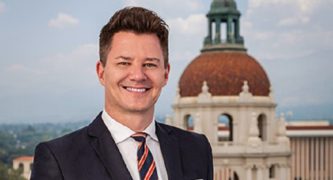 California’s housing crisis is a complex problem requiring thoughtful and innovative solutions. So far, our representatives in Sacramento have failed to deliver. The legislature’s answer to the housing problem has amounted to a ham-handed effort to rezone every city in the state for multifamily housing. This myopic quick-fix has encroached on local control of our community and undermined years of painstaking city planning. Pasadena ought to demand more. Our housing solutions have to be multifaceted and interdimensional, taking account of the social, environmental, and economic consequences of our choices. We cannot solve one problem only to create another.
California’s housing crisis is a complex problem requiring thoughtful and innovative solutions. So far, our representatives in Sacramento have failed to deliver. The legislature’s answer to the housing problem has amounted to a ham-handed effort to rezone every city in the state for multifamily housing. This myopic quick-fix has encroached on local control of our community and undermined years of painstaking city planning. Pasadena ought to demand more. Our housing solutions have to be multifaceted and interdimensional, taking account of the social, environmental, and economic consequences of our choices. We cannot solve one problem only to create another.
One creative proposal being floated at both the state and local levels is to allow affordable housing on religious institution properties. When the idea first came before the Pasadena Planning Commission last year, I was inspired by the passion of the measure’s proponents and impressed with their out-of-the-box thinking. This is a great example of taking what we have and making the best use of it, marrying religious institutions’ mission of helping others with the community’s need for available land to build affordable units.
At the same time, we have to consider the special limitations on government to regulate the activities of religious institutions. The First Amendment prevents governmental entities, including state and local authorities, from making any “law respecting an establishment of religion, or prohibiting the free exercise thereof.” The contours of the Free Exercise Clause have evolved over time and continue to be subject to a great deal of litigation. Before adopting by-right development of affordable housing on religious institution properties, we have to account for the constitutional limitations on the government’s ability to regulate church-owned properties.
One particularly heated current First Amendment debate is the extent to which religious institutions are permitted to discriminate against lesbian, gay, bisexual, and transgender persons. Although the State of California prohibits housing discrimination on the basis of LGBT+ identity, it remains an open question whether the State has the power to enforce those statutes against religious institutions.
Until recently, the U. S. Supreme Court held that a state could enforce a “neutral law of general applicability” even if that law had the incidental effect of burdening the free exercise of religion. A 2018 case, however, seemed to shift away from that principle. In Masterpiece Cakeshop, Ltd. v. Colorado Civil Rights Commission, the Supreme Court held that a state commission improperly enforced Colorado’s non-discrimination law against a baker who refused to provide a wedding cake for a same-sex couple. The Court stopped short of declaring that a state can never enforce such laws against religious adherents, but it found that special consideration must be given to religious objections even if the law is facially neutral and applicable to all.
Then, last fall, a U. S. district court in Los Angeles dismissed a lawsuit against Pasadena’s Fuller Seminary, finding that Fuller is entitled to deny housing and admission to students on the basis of sexual orientation. The case is likely to end up before the Supreme Court. For now, the takeaway is that it is far from clear whether a state or local government can prohibit a religious institution from denying housing to LGBT+ persons.
That uncertainty must give us pause before creating a special zone for church-owned housing.
Another concern is the federal Religious Land Use and Institutionalized Persons Act of 2000, which prohibits local zoning authorities from “substantially burdening” the exercise of religion through land use regulations. Religious institutions have used the law to challenge seemingly routine land use decisions It is not far-fetched to imagine that Pasadena could find itself defending a religious discrimination suit for, say, making a discretionary decision to limit the height of a church’s planned residential development.
California’s churches, mosques, and synagogues offer tantalizing opportunities to open up valuable land for the construction of affordable housing. With dialogue and collaboration between our elected representatives, stakeholders, and communities of faith, this could be one solution that works for all Californians. But we cannot create zones of lawful discrimination against a group of our neighbors who already experience housing instability at disproportionate rates. We also cannot create pockets of land that are beyond the reach of the local planning authority.
One option may be to assist religious institutions that wish to develop affordable housing in transferring ownership of the affected parcel to a non-profit holding company with an expressly non-religious purpose. Other possibilities will likely present themselves as we continue the conversation.
In the meantime, we must move with caution and not rush to solve one pressing problem only to create equally unacceptable downstream consequences.
Jason Lyon is a commercial litigation attorney at Hahn & Hahn LLP and a member of Pasadena’s Planning Commission.














 1 comment
1 comment


